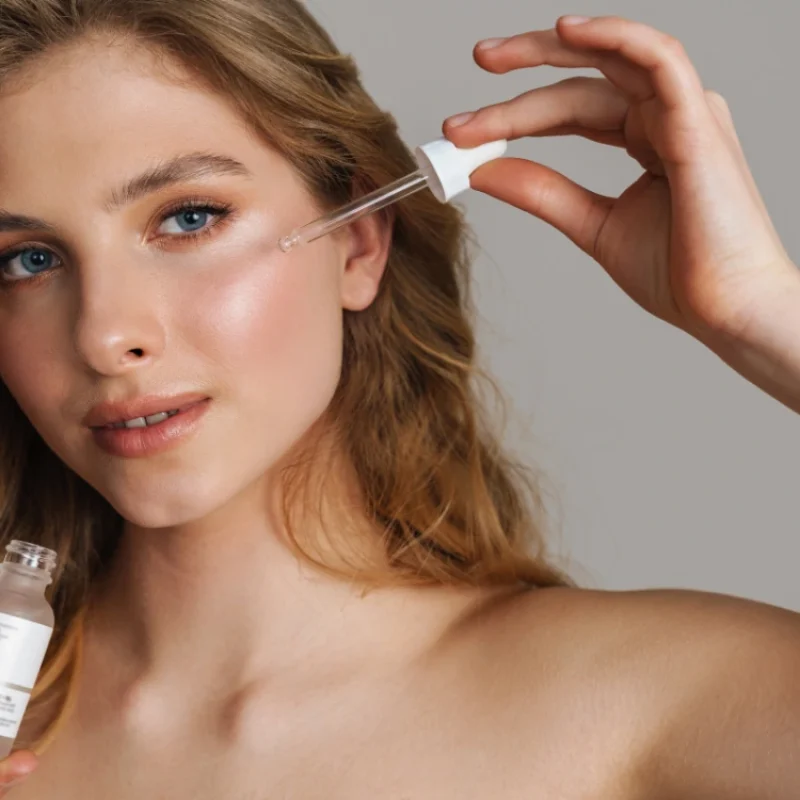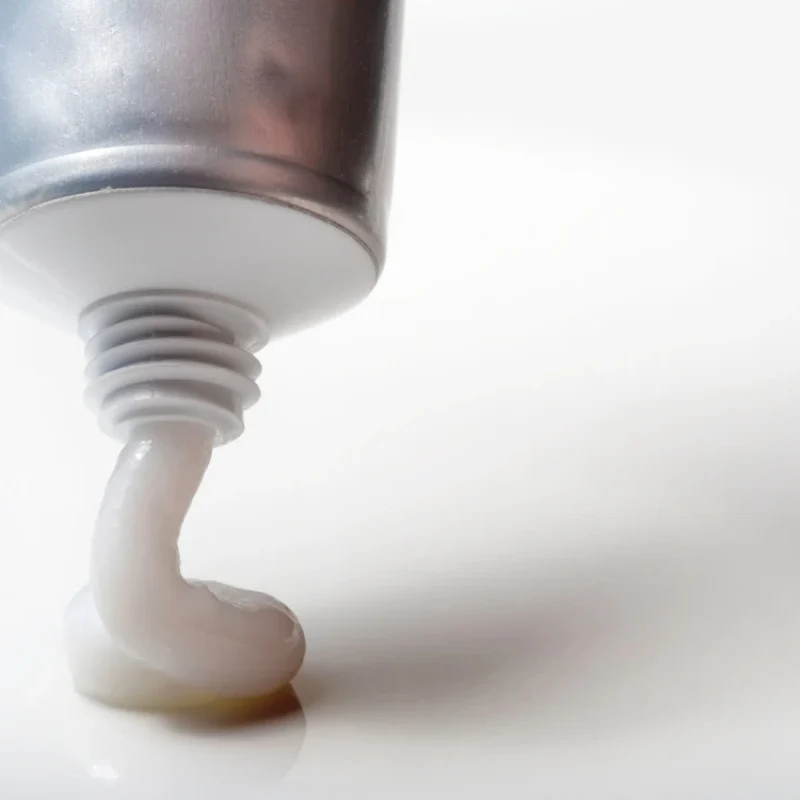Retinol vs Tretinoin – When it comes to skincare, especially for issues like acne, wrinkles, and hyperpigmentation, retinol and tretinoin are often mentioned. Both are derivatives of Vitamin A, and both can offer significant improvements to your skin when used properly.
However, despite their similarities, they have notable differences, especially in terms of strength, effectiveness, and how they are used in your skincare routine.
In this article, we’ll compare retinol vs tretinoin and find out their differences, benefits, and the best choices for your skincare needs. We’ll also provide some product recommendations and link you to the best Acne Ingredient Checker for more insight into acne-related skincare ingredients.
What is Retinol?
Definition and Composition
Retinol, often called Vitamin A1, is a fat-soluble vitamin that plays a significant role in skin health. It is one of the most popular over-the-counter ingredients in anti-aging and acne treatments. Retinol is converted into retinoic acid by the skin after application, which is the active form that works to improve skin texture, tone, and prevent the formation of acne.
Benefits of Retinol
- Anti-Aging: Retinol stimulates collagen production, which helps in reducing fine lines and wrinkles.
- Acne Treatment: By increasing skin cell turnover, retinol helps prevent clogged pores and can reduce acne breakouts.
- Hyperpigmentation: Retinol can fade dark spots and even out skin tone by encouraging the shedding of old skin cells.
- Gentle on Skin: Since it is less potent than tretinoin, retinol is often considered more suitable for sensitive skin, especially when starting out with retinoids.
What is Tretinoin?
Definition and Composition
Tretinoin, also known as all-trans retinoic acid, is a prescription-strength derivative of Vitamin A. Unlike retinol, tretinoin does not need to be converted into retinoic acid to be effective. It’s a more potent form of retinoid and is commonly used for treating severe acne, signs of aging, and hyperpigmentation.
Benefits of Tretinoin
- Faster Results: Tretinoin is more effective than retinol due to its potency, providing quicker results in treating acne and signs of aging.
- Acne Treatment: Tretinoin helps to prevent clogged pores, reduce acne inflammation, and promote faster healing of acne lesions.
- Collagen Boost: Like retinol, tretinoin also promotes collagen production, which helps reduce the appearance of wrinkles and fine lines.
- Treatment for Hyperpigmentation: Tretinoin is known to effectively fade dark spots and even skin tone, making it great for post-acne scars and sun damage.
Retinol vs Tretinoin: Key Differences

Potency
The biggest difference between retinol and tretinoin is their potency. Tretinoin is stronger because it is the active form of Vitamin A, whereas retinol has to be converted into retinoic acid in the skin. This conversion process makes retinol less potent compared to tretinoin.
- Tretinoin: Immediate, noticeable results, but may cause more irritation, especially for sensitive skin.
- Retinol: Milder and gentler, better for beginners or those with sensitive skin. Results take longer to appear.
Side Effects
Tretinoin tends to cause more irritation, dryness, and redness than retinol due to its strength. However, it is also much more effective at addressing severe acne, wrinkles, and hyperpigmentation.
• Retinol: Typically causes milder irritation, such as redness or dryness, but is more bearable for prolonged use.
• Tretinoin: More potent, which can cause peeling, dryness, and redness, especially during the first few weeks of use.
Speed of Results
Tretinoin is known for providing faster and more dramatic results. If you’re looking for quicker improvements in skin texture, acne, or hyperpigmentation, tretinoin might be the right choice. On the other hand, retinol may take several weeks or even months to show visible changes in the skin.
Retinol vs Tretinoin: Which One Should You Choose?
For Acne
Tretinoin is generally more effective for severe acne, as it works faster and is more potent in preventing breakouts. It also helps to treat cystic acne and prevent scarring. If your acne is mild to moderate, retinol might be sufficient, and it’s a less intense option to start with.
For Anti-Aging
Both retinol and tretinoin are fantastic for reducing the appearance of fine lines and wrinkles. However, due to its potency, tretinoin is often recommended for those with more significant signs of aging. For younger skin or those just starting with anti-aging treatments, retinol can provide a gentler, more gradual effect.
For Sensitive Skin
If you have sensitive skin or are just beginning to incorporate retinoids into your skincare routine, retinol is the best option. It’s milder and causes less irritation, which makes it easier for your skin to tolerate. Tretinoin may be too harsh for sensitive skin, especially without proper acclimatization.
Top Products to Consider
Here are some excellent products available on Amazon that contain retinol and tretinoin:

1. CeraVe Retinol Serum
Description: This serum contains retinol to help with acne and signs of aging. It is designed to be gentle on the skin while delivering results over time.
Benefits: Great for sensitive skin, reduces fine lines, and improves skin texture.
Link: CeraVe Retinol Serum
2. RoC Retinol Correxion Deep Wrinkle Night Cream
Description: A powerful anti-aging treatment that helps reduce the appearance of fine lines and deep wrinkles. RoC’s retinol formulation is known for delivering visible results.
Benefits: Firming, smoothing, and brightening.
Link: RoC Retinol Correxion
3. Differin Gel (Adapalene)
Description: This is a topical gel containing adapalene, which is a more potent form of retinoid. It’s a prescription-strength product that’s now available over the counter for acne treatment.
Benefits: Effective for treating moderate to severe acne, helps prevent acne breakouts, and promotes smoother skin.
Link: Differin Gel
4. Tretinoin Cream 0.025% (Prescription Required)
Description: Tretinoin is often prescribed for severe acne, hyperpigmentation, and fine lines. It’s available in a variety of strengths, but 0.025% is ideal for beginners.
Benefits: Targets acne, sun spots, and wrinkles effectively.
Link: Tretinoin Cream 0.025%
How to Use Retinol and Tretinoin
When incorporating these ingredients into your routine, it’s important to apply them correctly to avoid irritation:
- Start Slowly: If you’re new to retinoids, begin using them two or three times a week and gradually increase the frequency as your skin builds tolerance.
- Use at Night: Both retinol and tretinoin make your skin more sensitive to the sun. Always apply them in the evening as part of your nighttime routine.
- Moisturize: Make sure to follow up with a good moisturizer to prevent dryness and irritation.
- Sunscreen: Never skip sunscreen during the day, as retinoids can make your skin more susceptible to sunburn.
Conclusion
In the battle of retinol vs tretinoin, both ingredients offer excellent benefits for your skin, but they are suited for different needs. Tretinoin is ideal for those who need stronger, faster results for severe acne or deep wrinkles, while retinol is a gentler alternative that can still provide significant skin improvements over time.
No matter which you choose, always start slowly and ensure you’re using sunscreen to protect your skin. If you’re looking to dive deeper into acne-related skincare, be sure to check out our Acne Ingredient Checker for a better understanding of what works for your skin.
Disclaimer: Please note that some of the links on this site are affiliate links. This means that if you purchase a product through one of these links, we may earn a commission at no additional cost to you. Thank you for your support!






